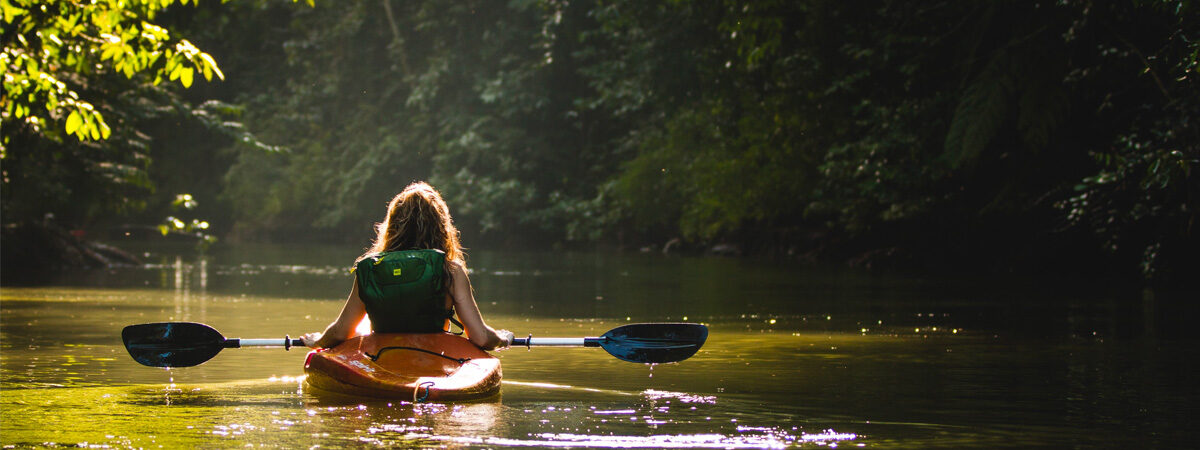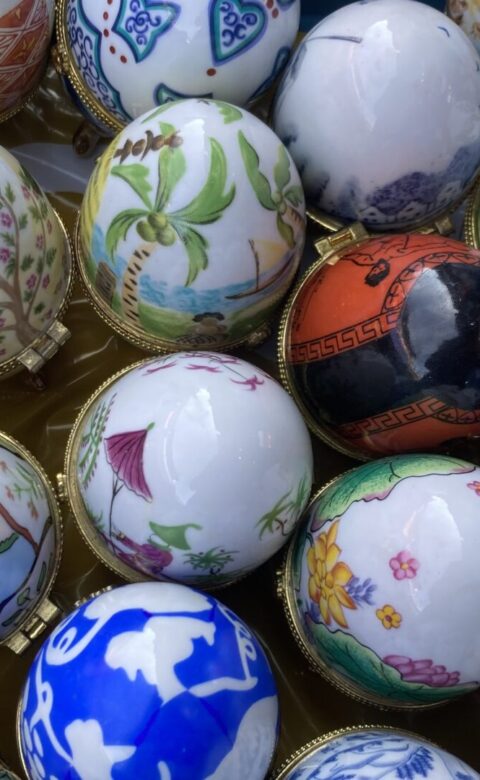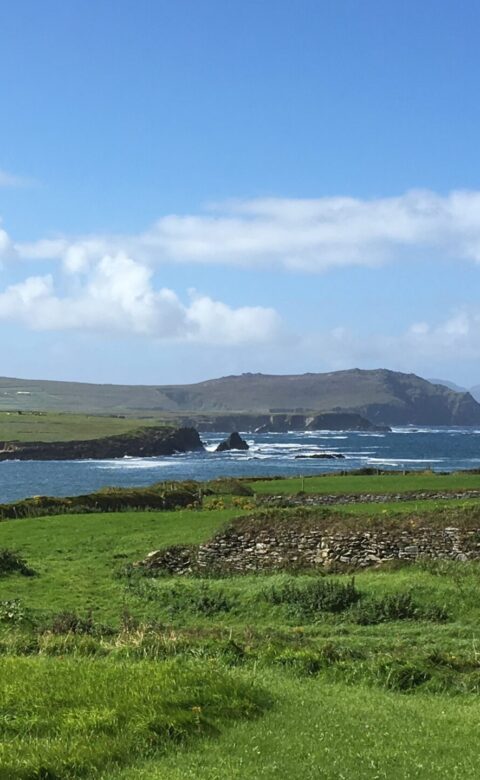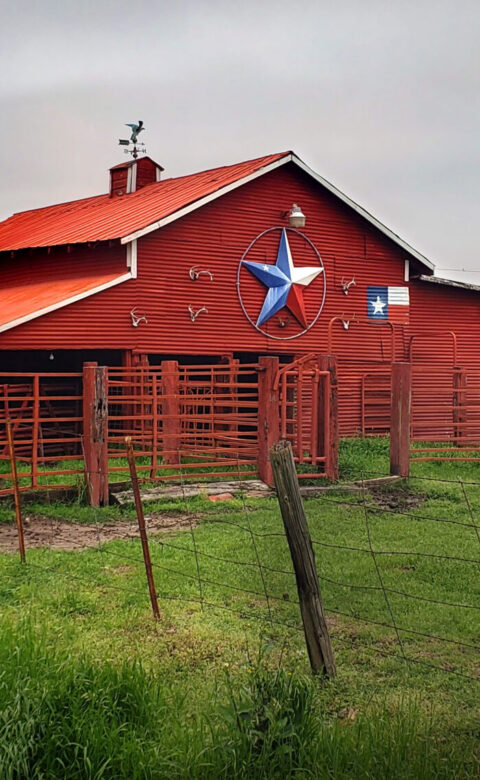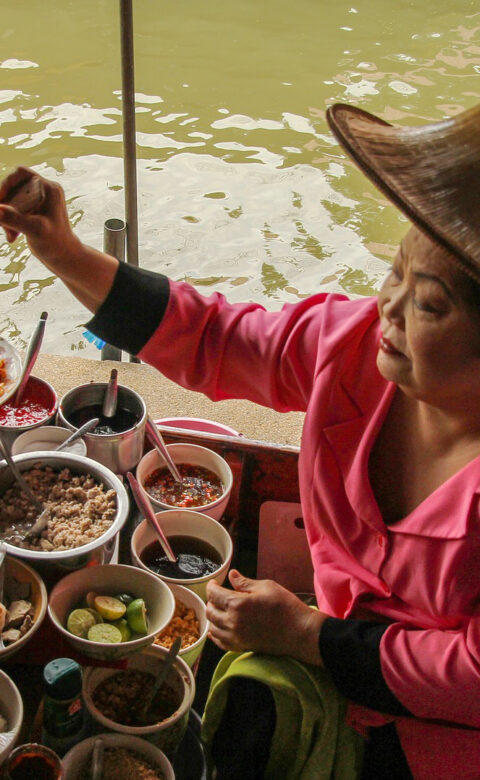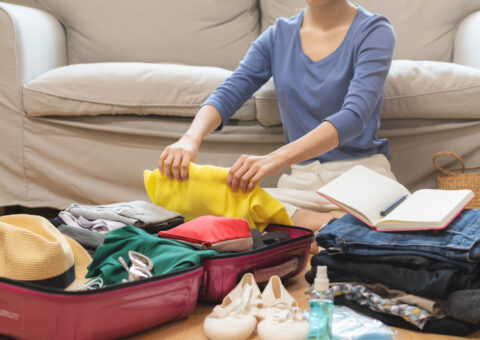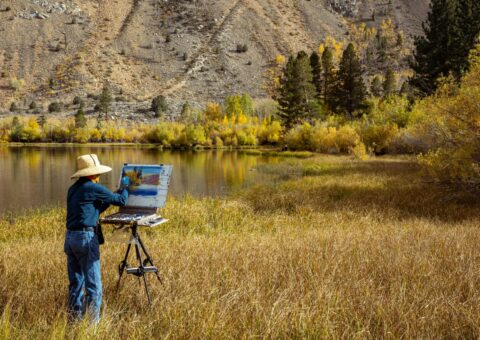Travel is about discovering places and meeting new people. When you head out into the world to explore, you are visiting other people’s homes — making you the guest and them the host. With that in mind, you have the opportunity to make a positive impact on the host community while travelling. When you focus on the protection and preservation of places, cultures and environments we believe every visit can, and should, be of mutual benefit to both host and guest.
So, how can you create a lasting beneficial impact on the places you visit while travelling? Here are a few tips to make sure your travel has the intended positive effect on the host community.
Before you travel
With all the digital tools available, not only is it easier to arrange travel; but we have also developed a tendency to leave planning to the last minute. We prepare ‘on the fly’ and quite literally wing it. Instead, you should read as much as possible about the country and the place you are visiting before departing your home. You can ask your tour operator questions, search the internet or even visit a good old-fashioned bookshop!
Knowledge is power, and taking the time to familiarise yourself with your destination can create a powerful positive impression. You will always make new friends if you learn a few words of the local language, and take the time to understand their customs when greeting and meeting new people. Be prepared.
Meeting local people
When visiting a place, it’s easy to forget that you are indeed a guest. We travel because we are curious about people and places. Arrive with an open mind and be respectful of their way of living. Travel is your time to learn and experience.
As you travel, you will encounter holy places like churches, temples or sacred grounds. Are you aware of dress codes according to local customs when visiting their holy sites? Observe, and ask if you are in doubt.
All people should be met with respect, regardless of status, position or how they make a living — from village elders to beggars on the street. In the latter case, you might be tempted to give to children that are begging; but think twice. It may only encourage them to continue to beg instead of going to school, or they might be part of a bigger scheme which ultimately doesn’t benefit them (and which you should not feed into). Instead, you can always spare a couple of minutes for a chat.
Have you ever had anyone point a camera at you? Did it make you uncomfortable? But if someone asks if they can take your photo, you might even say yes, and put on a smile! In many circumstances, it is about the interaction taking place beforehand. Begin to take part in what people are doing by showing interest. Do not provoke, but be polite, and you might just be invited to participate.
Recognise and celebrate both our differences and what we have in common; meeting people across borders is very important for understanding each other’s culture and building bridges.
And hey, one last thing when you meet local people — be careful where you smoke and drink alcohol. Smoking is not yet common in many small communities and travellers should not encourage local people to smoke. Some areas also have strict rules about smoking and drinking. Alcohol in many places is a major social problem. It all goes back to knowing the customs and rules before you go.
Be careful with the use of resources
You may come from a country where you have plenty of water. Maybe you haven’t even given it a second thought, and long luxurious showers are the norm at home. Unfortunately, this is not the case everywhere — water shortages are common in many places. With that in mind, make sure you do not waste this precious resource. Maybe this is not the place for taking a bath? Or to let the tap water run unnecessarily while brushing your teeth? The same goes for being mindful of electricity use.
There are simple things you can do to conserve resources. You can keep your towels for reuse, turn off lamps and other electrical equipment when they are not needed; simple things, but they do have an impact. And even before you book, think about the type of place where you’ll stay: for example, maybe you could choose a solar-powered eco-lodge for your next journey.
Experience new, slow food
A huge part of experiencing a new place is discovery through food. As part of your travel preparation, check out the seasonal local dishes. Which ingredients can you expect? What’s at its best right now? Which local dishes should you ask for at the restaurants?
When you focus on locally sourced food, the money spent stays within the community and your meal plays a role in the local economy, including the waiter, chef, restaurant owner, market vendors and farmers. They are all part of the tourism industry, whether directly or indirectly.
When you stay in one place for a while, you may think you’ve found your favourite restaurant on the first day. However, by trying out different places, you also spread your money to multiple stakeholders. Plus, of course, you will diversify your dining experiences, enjoy more variety on your plate, and get to know the specialities of your destination even better!
Bottom line: if you buy seasonal locally sourced food, you contribute to local economic growth and positively impact the host community while travelling.
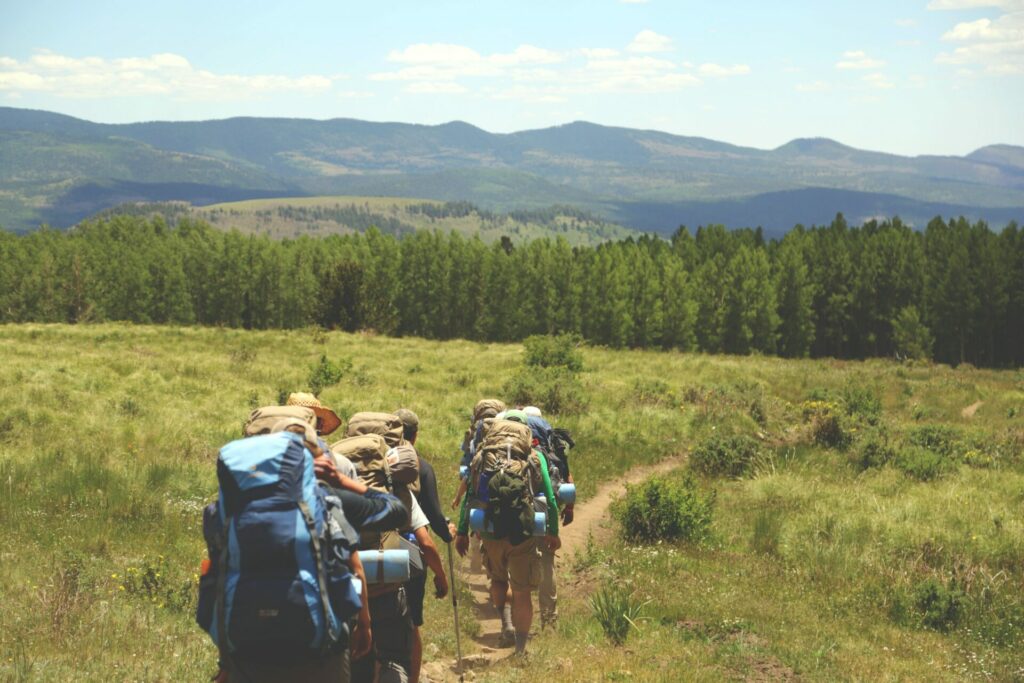
Support excursions that contribute to the local community
When you are visiting a place, naturally you want to get as much as possible from your stay. But why jump on the first and ‘best’ excursion you see? Take a breather, step back for a moment and research what’s available. Make an informed decision and choose environmentally friendly excursions even if it costs you a bit more money; those that are run and owned by locals.
Chose excursions that do not harm people, animals or the environment. If in doubt, you are better off opting for another choice. Don’t be afraid to ask questions so you can make informed decisions! And when looking at ways of getting out and exploring in a new place, why not try the local transport?
Be a conscious shopper
Are you one of those people that simply must have a new souvenir from every corner of the globe that you visit? It is easy to follow the herd into the popular shops and forget the important questions. Being conscious of what we are buying can have a big impact.
Stay away from products made of endangered species or plants. When it’s attractively packaged, it’s also easy to forget that cultural heritage is not an appropriate souvenir — do not purchase such items or take ‘trophies’ from places you are visiting. Leave them where they belong; instead, buy copies in a shop nearby (locally made of course).
Do you ask where the items are being produced? Or where the materials are from? You are on the safe side if you buy from the artist themselves, and have the opportunity to learn where the materials are coming from. Responsible shopping is an art, but on the practical side, it’s very important to keep fair trade standards among all stakeholders involved.
Bargaining is the culture in many places, but don’t let it become a sport with winners and losers! Pay a fair price that both parties are happy about. The true ‘win’ is when buyer and seller walk away from the deal smiling and satisfied with the outcome.
It should go without saying, but never, ever buy drugs — you may end up spending years in prison, or worse in some places.
Be careful with your surroundings
You may come from a place where waste management is implemented by your government, and recycling, reducing and reusing are simply an aspect of life that takes place on autopilot. This is not the case all over the world. But you can do your part, and be a good example. Do not litter outdoors or in the street; if there is no bin, take your trash with you.
Reduce as much waste as you can. Bring empty plastic bottles (such as shampoo, shower gel etc.) with you back home, where you can deal with the plastic. Say “no thank you” to plastic straws and single-use plastic, and bring a re-usable shopping bag. They’re little things that make a big impact.
If you are travelling in nature, let that nature be wild and unspoiled. Keep to paths in fragile habitats, leave wildflowers, plants and mushrooms alone and enjoy them in their natural environment. Respect wild animals, keep your distance for your own safety and do not disturb them. Don’t feed them or cause unnecessary noise. Wildlife is best when it is free.
Leave the host community as a friend
You came as a stranger, a visitor, but aim to leave the community as a friend. A friend with more insight and knowledge about the place. A friend that has spent time interacting and exchanging cultures, bridging the gap of better understanding each other. A friend that made sure the holiday had a positive impact on the community.

